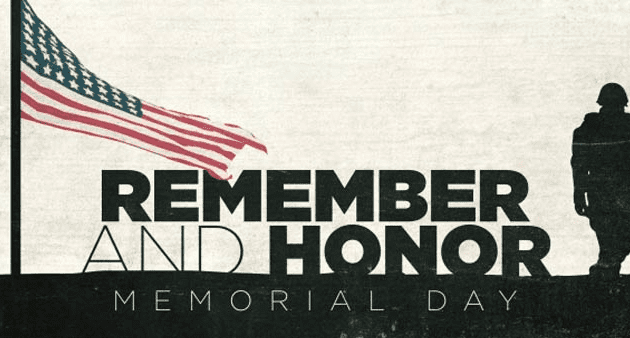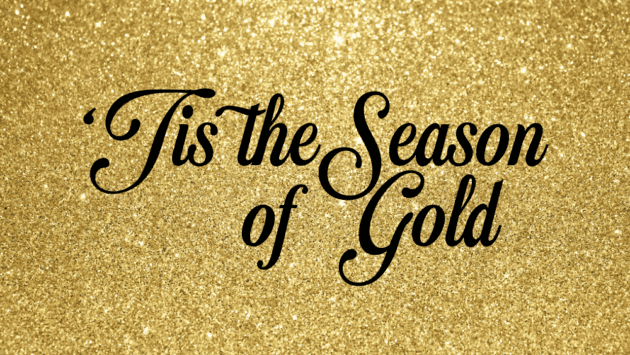
On March 4, 1865, President Abraham Lincoln stood on a muddy street, delivering his second inaugural address. The Civil War was coming to an end, and the President gave a paragraph of his speech to the unification of the North and South after years of bloody fighting:
“With malice toward none, with charity for all, with firmness in the right as God gives us to see the right, let us strive on to finish the work we are in, to bind up the nation’s wounds, to care for him who shall have borne the battle and for his widow, and his orphan, to do all which may achieve and cherish a just and lasting peace among ourselves and with all nations.”
How Memorial Day came to be
It is the last portion that I want to highlight. His wish was that we, as a nation, care for those who have carried the burden and horrors of the war, and for their families, who will continue to carry the loss of those who laid down their lives.
The following year, Decoration Day began, where loved ones and those who wanted to honor the sacrifice of the fallen would assemble and place flowers (decorations) on the graves of the soldiers. This tradition continued independently by states and towns throughout the country until 1971 when it officially became Memorial Day.
Let’s remember the reason for Memorial Day
For most Americans, the day announces the start of summer. It is full of barbecues and picnics. Most of our nation takes our freedoms for granted. They have never seen or experienced the trials and struggles of battle. Because of this, the term “free” becomes abstract. This leads to few Americans remembering what the reason is behind Memorial Day. According to a military.com article, “Only 55% of Americans know what Memorial Day is about, and only about one in five plan to fly a flag at half-staff or attend a patriotic event on [Memorial Day], according to a Harris poll survey commissioned by the University of Phoenix.”
It is easy to forget the reason for Memorial Day. As a veteran who has lost brothers and sisters in arms, I do not fault anyone for this. Time keeps moving forward. Those who did not experience the events as they were occurring lack the perspective as those who lived through them.
A great example can be seen with the 9/11 memorials. We say things like “never forget.” But that holds true only for us affected by the tragedy. For example, how many people remember the Alamo or can give the details of December 11, 1942, a day that will live in infamy? For the most part, memorials are attended by the families of the lost. Others simply lack a connection to the event.
I will never forget
9/11 means something very different to my children than it does to me. While they can empathize with the events that day, they will never have the emotional reaction to its memory. Like many who were old enough to remember that day, I can tell you exactly where I was and what I was doing:
As a young Field Artillery 2nd Lieutenant, I was conducting field operations at Fort Bragg, North Carolina. We had just sent down a fire for effect mission to the battery. I was excited because it was my first Fire For Effect shoot (this means the cannons fire several rounds in succession). But this all changed when my commander, CPT Morton, gathered up all the officers and told us, “Boys, we’ve been attacked. We’re going to war.”
It was also when I saw the cost of that attack. While I had been blessed to not have known anyone at the Towers or Pentagon that day, our First Sergeant lost his brother in the first plane attack. One of the most stoic men I knew was reduced to tears. Of course, that was just the first of many losses I would unfortunately be witness to.
The number of sacrifices is much more than a statistic
The numbers can speak for themselves on this issue. For the Global War on Terror, the Department of Defense recognizes five campaigns: Iraqi Freedom, New Dawn, Enduring Freedom, Inherent Resolve, and Freedom’s Sentinel.
Officially, there were 5,474 KIA and 53,332 WIAs. I have heard many people express amazement at how low the overall numbers are, considering most conflicts have an exponentially higher toll. This is true, as a statistic. However, like every conflict, the reality on the ground is much more relevant and truer.
Paying our final respects: the Ramp Ceremonies
Anyone who has served in theater will undoubtedly be aware of the traditions that we hold to honor those who sacrificed. The most somber of these traditions would undoubtedly be the Ramp Ceremonies.
Every time we lose a soldier in theater, the remains need to be transported back home. As the service member makes their way to the airfield to take their last flight back to their family, all personnel not currently performing mission-essential tasks line the streets, silently acting as sentinels, waiting to pay our final respects to our brothers or sisters. As the deceased passes, we offer one last salute in honor of their sacrifice. It is a somber and humbling experience and helps to put into perspective the sacrifice some are required to make.
Remember and honor those who never came home and those who will forever be without them
What I always reflect upon are not the service members themselves, but the families forced to carry the burden of losing their loved ones. It is why we have a special term for these individuals: Gold Star Families. During Memorial Day, it is those that my thoughts and prayers go out to. We specifically honor them on the last Sunday in September with Gold Star Mother’s and Family’s Day and again on April 5 with Gold Star Spouses Day. Yet, most have no idea what this badge of honor and sorrow means.
I have stories that will haunt me for the rest of my life involving some of these families. We lost a sergeant on his daughter’s fifth birthday. He was going to make a video call to her that night. Instead, she and her family received the worst news possible. Not only would her father not be there to teach her to drive, give her away at her wedding, or bond with her children, but for the rest of her life the day of her birth will be permanently marred with this loss.
On this Memorial Day, I ask that you take a moment to reflect upon what our country has sacrificed for ourselves and others. Take a moment to celebrate those who never came home to enjoy that time with their family.
Most importantly, find a Gold Star member and let them know you appreciate their sacrifice. Let them know that you, a stranger, want to pay your respects for their loss. This simple act of kindness could completely change someone’s life. It might allow someone a bit of comfort to know that there are some out there who regard and honor those who gave all and that their loved ones ARE NOT FORGOTTEN!
About Matthew Wadler
Major (O-4), U.S. Army (Retired)
Matthew Wadler joined the US Army immediately after graduating from high school in 1991. Where most 19-year-olds were enjoying their freshman year in college, Matt spent this time in Somalia. He spent 6 years as an enlisted soldier before becoming an officer. He is a graduate from Airborne School, Air Assault School, and the Defense Language Institute. He has completed the Primary Leadership Development Course and the Officer Basic and Advance courses in addition to achieving his master’s degree. Along with his first deployment to Somalia, Matt was deployed twice to Afghanistan. He retired at the rank of Major.

The post Memorial Day – Remember and Honor appeared first on Gold Alliance.




